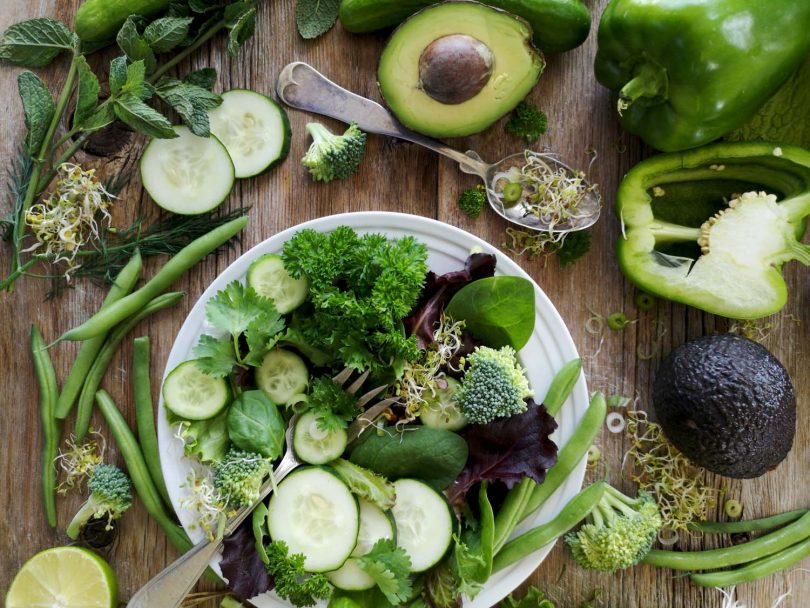Dr Marion Gluck, founder of The Marion Gluck Clinic explains how to reduce inflammation through diet, how to reintroduce food groups and the best things to eat to help lose weight.
A certain level of inflammation in the body is needed to heal in response to any injuries, however, it should resolve promptly. If it doesn’t, the body stays in a state of chronic inflammation potentially leading to several health complications.
It is important to remember that everything we eat, will affect our minds and bodies, and a key player in how we feel, is the community of microbes who live in our gastrointestinal tract. This population of microbes is known as the gut microbiota. Collectively they help to digest food, synthesise vitamins, fight infections, and, as discovered more recently regulate brain health, good microbes, derived from plant foods and fish can actively help reduce inflammation.
The gut microbiota can affect levels of chemicals (or neurotransmitters – molecules that facilitate neuron communication in the brain). Certain types of microbes in the gut can directly stimulate the production and release of serotonin in the cells lining the colon. In fact, these serotonin-producing cells account for more than 90% of serotonin production in humans which shows just how important these are on brain function and how we are feeling. If your gut isn’t functioning correctly, due to inflammation it may be that these cells aren’t able to produce the right levels of serotonin which will then affect how you feel physically and your mood.
Which food groups cause inflammation?
Excluding allergies, coeliac disease or lactose intolerance, our bodies should be able to maintain a healthy relationship with food. Issues can arise though when there is an excessive and repetitive intake of certain foods leading to food-related inflammation. Under these circumstances, the body produces substances called cytokines, which if elevated in the blood and gut for a prolonged period of time cause a chronic state of inflammation. Food-related inflammation and the reactivity towards food can be clustered in food groups, usually linked to the excessive intake of those. Wheat and gluten, yeast, milk and its derivatives, as well as nickel, constitute some of the “Great Food Clusters”. Prolonged inflammation can make it difficult to shift any extra weight and can make hormonal conditions such as endometriosis and PCOS worse.
We now know that food-related inflammation can have an impact on many conditions including type 2 diabetes, colitis, autoimmune diseases or even migraines. It is also known to significantly impact on weight gain and obesity, with people suffering from food-related inflammation at higher risk of developing insulin resistance and fat accumulation as a defence mechanism.
Reintroducing foods
The good news is that the human body has a great ability to adapt, and therefore it is possible to re-establish tolerance to foods by following a gradual and controlled intake of the foods shown to cause reactivity. This is done in a process similar to weaning in babies, or a rotation diet, where within a few months one will be able to eat most foods again
A personalised relationship with food is the best way to keep inflammation at bay, ultimately allowing for a good body metabolism, balanced insulin sensitivity and a healthy weight.
Lifestyle changes
We know that good lifestyle strategies will improve the immune system, support the liver and balance hormones but these changes can also go a long way in reducing inflammation. In addition to exercising regularly and getting plenty of sleep, a large portion of these lifestyle changes are linked to diet. To ensure that we are giving our bodies a fighting chance at treating inflammation, we should be consuming a diet that ticks the following boxes:
- Improves immune function – foods containing phytonutrients such as leafy green vegetables; berries; and seeds such as flaxseed.
- Supports general detoxification – fibrous foods such as beans; wholegrains for B vitamins; leafy green vegetables; other nutrient-rich vegetables such as artichokes, beetroot and carrots; healthy, clean proteins such as those found in salmon (this also contains omega 3, which contributes to the improvement of immune function).
- Supports estrogen detoxification – sulforaphane-containing vegetables and cruciferous vegetables such as broccoli, sprouts, cabbage, kale, cauliflower.
Foods To Avoid:
- Alcohol
- Caffeine
- Processed carbohydrates (in tandem with refined sugars, processed carbohydrates drive weight gain and inflammation in the body. The heavier we become, the more insulin-resistant we become, the more glucose levels go up in the bloodstream, and this drives inflammation)
- Dairy
- Fried foods (these have omega 6 fats in them; our bodies need more omega 3 than omega 6, as too much omega 6 will compete with omega 3, causing inflammation)
- Processed foods containing preservatives
Main photo by Nadine Primeau on Unsplash





Leave a Comment